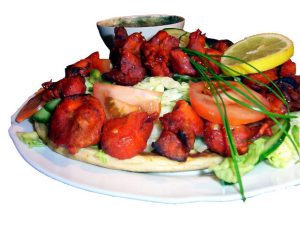Ramadan Binges Sending Dozens To The Hospital
 The holy month of Ramadan is about discipline, devotion to God and self-control.
The holy month of Ramadan is about discipline, devotion to God and self-control.
But many Muslims who observe the tradition of fasting during the day – which started in early July and lasts until early August – are ending up in hospital beds late at night.
The cause? Overeating.
Breaking fast in a bad way
When the sun goes down, Muslims around the world can return to eating, drinking, smoking and sex – activities they give up during daylight hours during Ramadan.
The problem, however, is that overeating to the point of sickness is all too common at the nightly iftars (parties) that take place. The Huffington Post reports that an average of 15 patients are being admitted to hospitals each night of the month-long fast, and the symptoms are “horrific.”
“They generally start arriving at the emergency room around 8-8:30 p.m. in severe gastric pain and with repeated vomiting,” said a medical staff member at Al Ahli Hospital.
Ailments like gastroenteritis, renal colic and gastritits become common, and treatment usually consists of painkillers, anti-inflammatory drugs and emetics.
A healthier approach
Though it’s tempting to break the fast by eating everything and anything, nutrition expert Alyse Levin recommends a protein-rich menu with greens and grains to keep blood sugar levels from swinging too high after not eating all day.
The worst thing to do, she noted, is fill up on refined carbohydrates and sweets.
“It takes about 20 minutes for a signal to go from your stomach or your G.I. tract to your brain to tell you you’re full,” she told the LA Times. “So if you eat very quickly, you’re much more likely to overdo it right when you break fast.”
A United Nations report issued this week found that populations in the Gulf region are becoming among the world’s fattest, making Ramadan a time to pay particular attention to proper diet and health practices.
Sources: LA Times, Huffington Post
 Eating Disorder Self Test. Take the EAT-26 self test to see if you might have eating disorder symptoms that might require professional evaluation. All answers are confidential.
Eating Disorder Self Test. Take the EAT-26 self test to see if you might have eating disorder symptoms that might require professional evaluation. All answers are confidential.